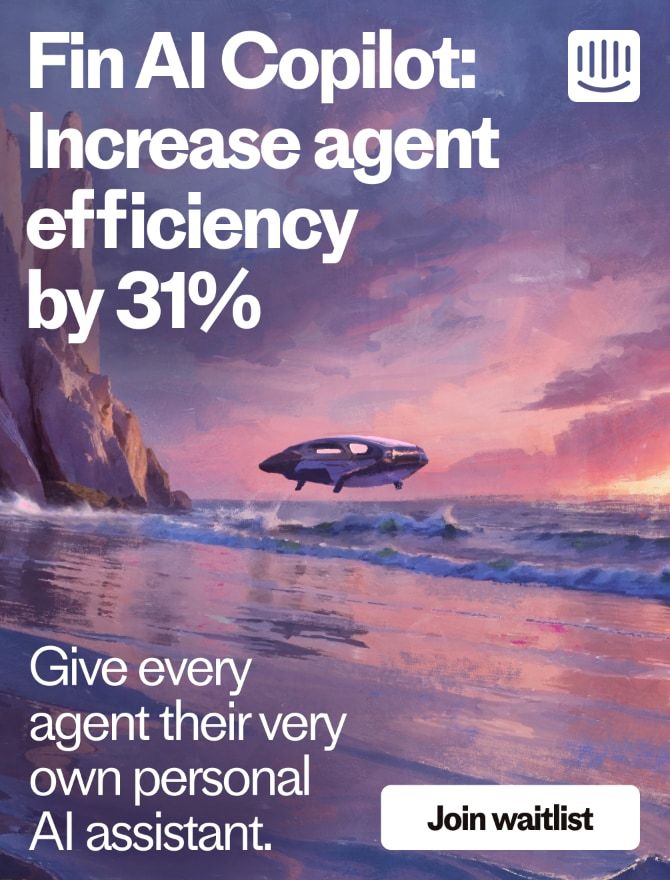
Tracy Chou on startup engineering, inclusion and the liberal arts
What is it that we as technologists are building and how can we make the community building it more inclusive? Entrepreneur, software engineer and diversity advocate Tracy Chou wants us all to think about the answer.
Tracy was the fifth hire at Quora, and later become one of the first 10 hires at Pinterest. As an engineer and tech lead there from 2011-2016, her projects covered the full stack, from home feed and ad products to API, infrastructure and growth. Somewhere in between, Tracy made time to co-found Project Include, a non-profit that uses data and advocacy to accelerate diversity and inclusion solutions in the tech industry. She’s also an advisor to the seed-stage VC firm Homebrew on all things engineering, product and culture.
I recently caught up with Tracy for a wide-ranging conversation. We cover the engineering growing pains she experienced at Pinterest and Quora, whether engineers should become specialists or generalists, and why a liberal arts education can help us build better, more inclusive products and teams. What follows is a lightly edited transcript of our chat.
Ingrid: Tracy, many of us at Intercom really look up to the great work that you’re doing to make tech more open and inclusive. Can you give us a quick rundown of your career; from becoming an engineer to becoming a founder?
Tracy: I studied electrical engineering and computer science at Stanford and during my time there, I did a couple of internships. They were the very classic, iconic Silicon Valley internships – one at Google and one at Facebook.
After graduating I worked at Quora, which at at that time was only a handful of people. I joined as the fifth hire. It was a revelatory experience for me to go in and see something being built from the ground up. Even though I’d worked as a software engineer before, I didn’t quite get that because I’d always been plugging into slightly larger systems. Quora was really where I fell in love with coding and software engineering.
I was there for a year and a half before I moved to Pinterest, which was also a pretty small company at that time. At the point that I signed my offer, there were eight people. I had actually been thinking that Quora had gotten a little bit large. It was 30 people when I left and I wanted to have that small startup experience again. The funny thing is that Pinterest very quickly outgrew that initial size.
When I left Pinterest last year, after four and a half years there, the company was a thousand people. It was an incredible experience for me as an engineer. I got to work on a whole wide range of projects and different stacks and teams. It was a very fun thing for a software engineer to be able to work on and learn so many different things and get to be a part of scaling up a site that is now used by so many people all over the world.
Startup life outside Silicon Valley
Ingrid: What have you been up to since leaving Pinterest last year?
Tracy: One big life change I made after leaving Pinterest was that I moved to New York City, just to be exposed to so many different industries. It’s quite different than San Francisco, which has a little bit of that tech monoculture, which is both a good thing and a bad thing. It’s really good for having that focus and every time I go back to San Francisco, I can feel that. Every coffee shop I go to it feels like everyone there is coding or pitching or recruiting.
That singular focus is the energy that drives the Silicon Valley ecosystem, but it can be a little bit insular. In New York, there are so many different industries and tech is a relatively small player. That diversity of people and industry is really exciting.
I’ve been working on a few different things, both in the nonprofit and for-profit sectors. On the non-profit side, I’ve helped to co-found a couple of organizations. One is Project Include, which is focused on diversity and inclusion within tech startups. The other is The Arena, which was dreamt up as a political organizing conference after last November’s US presidential elections. I’ve also been playing around with a few different other for-profit startup ideas.
Ingrid: You actually co-founded Project Include while you were still at Pinterest, right? How were you able to balance the two roles?
Tracy: For Project Include, I was very lucky to be at Pinterest. They were so supportive of me working on diversity and inclusion efforts that spanned the industry in addition to efforts internally. That part was very fortuitous for me.
Reflecting on the rest of my time at Pinterest even before that, the company was generally very supportive of me doing diversity and inclusion work, whether that meant speaking at conferences or talking to press or various other engagements. It is a bit of a balancing act between the engineering and technical side and the diversity work.
When I left Pinterest, it was actually not to focus on diversity and inclusion full-time. Having done these different types of work over the past few years, I’ve discovered that I still most enjoy engineering work and product work. I like building things and I’m very excited about the power of software and how it can scale. Even though I obviously care very passionately about diversity and inclusion, it’s hard for me to work on that full-time because that sort of work generally is a lot more talking, messaging, branding, thinking about activism and social movements. While I enjoy it, to some degree it’s not the same for me as coding. I need to have some coding in my life to feel fulfilled.
I need to have some coding in my life to feel fulfilled.
Ingrid: To many of us Silicon Valley seems like this ideal place to work and start a company, especially since it’s still the leading center for venture capital investment. You’re also an advisor with Homebrew, the seed stage investors, so I assume many of the companies that you work with are based in the Bay Area. What are the main challenges you’ve encountered being a co-founder outside of that environment?
Tracy: In New York, the ecosystem around startups and tech is just not as strong as it is in the Valley, and so even though there a lot of great people with great experiences, there’s just not as many and it’s not as dense. There’s also a bit of a difference in the sorts of ambitions and outcomes that people in New York are looking for.
If you think about the street Pinterest was on in San Francisco – right next to us was Airbnb. Go down a little bit and there’s Dropbox. Instacart was close by for a while. There’s all these billion-dollar companies on just one street in San Francisco. There’s so many of these anchor companies, the sort of companies that people would move to a city to work for.
There’s not as many of those in New York. There’s not as many people who’ve been a part of that startup trajectory that I’ve been so lucky to have been a part of with Quora and Pinterest. There’s just not as many people who have joined early stage tech companies that then became really large and have gotten a hunger for that kind of success.There’s no right or wrong or good or bad. There’s just differences in expectation and desires. Because you have so many people in the Valley who’ve been a part of these success stories, they will have more of that ambition to achieve the same with their startups. But, on the other hand in New York, you have all this cross-fertilization from other industries, which is really valuable.
Early-stage engineering growing pains
Ingrid: You were the fifth hire at Quora and one of the top first 10 at Pinterest. Many of our readers are in similar early stage situations. What are the main growing pains the two companies had in common from both a technical and engineering culture point of view?
Tracy: One very big takeaway I had is that every organization is going to be very different. Small organizations can vary wildly in what sorts of investments they’ve made and processes they’ve set up. For someone who wants to work in a startup, it’s just good to anticipate that there will be a lot of chaos.
Thinking about the engineering investments Quora made versus Pinterest, they were just in such different positions. Even though Quora was smaller when I joined and had raised less money, the first thing the co-founders did was write their own web framework. It was a really nice web framework and I’m still a little sad they haven’t open-sourced it. There was ample testing frameworks already set up and even at the point I joined, a commit and push to master would then trigger the test run, and then all the test paths would automatically deploy. We didn’t do code reviews before we pushed to master. We were essentially doing post-deploy code reviews at Quora, but we had enough faith in our testing infrastructure and the modularity of our code base that we were okay with that.
The first thing the Quora co-founders did was write their own web framework.
Pinterest was much more a Wild West of coding. When I went in there, we had no tests and no monitoring on site. We didn’t even know how many active users we had because we weren’t doing request logging. It was just complete chaos. At the same time, people were using it and we were scaling really fast, so the engineering setups were totally different.
Even though Quora was really tiny when I joined, it was still a great place for me to learn the fundamentals of software engineering. That’s really where I learned how to be a software engineer. I can imagine if Pinterest had been my first job out of school, where a lot of it was thrown together to see if it would work, it would have been a lot harder for me to figure out good ways of doing things. It’s more common for startups to just hack things together and try to find some sort of product/market fit before investing in testing.
There’s a lot that’s very different from organization to organization, but one constant is change. I know that’s very clichéd, especially for startups who are growing fast, but even for ones that aren’t and are just trying to find product/market fit or stay relevant, there’s going to be constant change. With growth and change, there will be a lot of flux in organizational structure, communication and the way things get done. I got to see many different changes in our team structure at Quora and Pinterest, where we went from just engineers that had no particular specialization to engineers that worked on web and engineers that worked on API and infrastructure. I remember when we first introduced the web team at Pinterest, it was so shocking to me to think there would be a team just focused on just web when previously none of us were assigned to any particular team. Obviously it made sense to do that at that point.
There were also different shifts in how we coordinated. At one point, all the tech leads at Pinterest would meet to stay in sync. When we’d hired enough product managers there was a shift and the organization went through them. I think it was better for product, but it also meant there was going to be less communication amongst the tech leads. That meant there was more potential for duplicative efforts in engineering because the points of contact between teams were sometimes nontechnical. Even if they were technical PMs, they wouldn’t necessarily know all of the nitty gritty of what was being worked on on the engineering side.
Then continuing to scale on the engineering front at Pinterest, we had questions of whether we should organize by product base, or if we wanted to have full stack teams or platform-based teams like web and API and infrastructure, or if we wanted to have the growth team or a Pins team or a search team that was fully vertical. We were constantly changing our structure.
In a much larger organization, re-orgs can feel very frightening, because they mean much bigger changes. But early on you just expect to be on a different team with different people very regularly.
Generalists vs specialists
Ingrid: What really attracted me to the constant change at startups it is that you get this opportunity to explore different parts of the stack. For example, when I joined Intercom, I really wanted to do front-end and I really wanted to do Web, and I helped build our Educate product while doing so. A year and three teams later, I’ve also worked on CI and backend and production systems.
I know you have a similar story. With Pinterest and Quora you worked on web ads, infrastructure, email, even growth. It’s common for engineers to ask themselves or their managers, “Should I specialize or shall I be a generalist?” What do you think? What impact and value does being part of multiple teams has on someone’s career development?
Infrastructure is more about stability and fading into the background.
Tracy: A lot of it is very personal. Some people like being very focused on one part of the stack and developing deep expertise there; other people, like me, are a little bit more all over the place. One of the big benefits of working on many different teams is that you start to develop much more of a feel for the whole system and how it all fits together. You start to build much more technical empathy. When you’ve been both client and server, you understand the challenges of each and how important it is to fulfill the contracts on both sides. You start to understand what other people are concerned about.
On front-end teams, it may be more about velocity of product iteration, but on infrastructure, it’s more about stability and fading into the background. No news from the infrastructure side is often good because everything is stable. It’s about keeping things calm. Whereas on the product front, if you’re not getting constant updates, it feels like you’re not doing anything. There’s very different perspectives around development.
Having worked more at the back end, where you’re responsible for stability, you’ll want front-end developers to start to take over some of that ownership and think about the implications of what they’re doing on the product side and how that can impact stability. It’s a good exercise in understanding how everything fits together and the different concerns of different engineering teams. It makes it easier to work with different people because you have been in their shoes and understand what motivates them and what they’re concerned about.

It’s also very good for people who want to work at startups to have full stack experience. I’ve done a few different product build-outs, and I’ll go one moment from twiddling CSS and moving things a few pixels to the left or right to setting up the PostgreSQL database. Anything all over the stack is fair game. Having experience in all these different parts of the stack is useful for anticipating what you’re going to need to know or what you’re going to have to do to get something working end to end.
Learning from the liberal arts
Ingrid: You wrote a great essay recently about education and why you wish you would have emphasized the liberal arts. How do you see them fitting together, and why do you think this type of well-rounded education is so important?
Tracy: Now that technology has become so pervasive in everyone’s lives and is really changing the ways that we interact and communicate, it’s hard to divorce how we create technology and the implications of it from all these other aspects of society and history. Psychology, sociology – everything that is human is relevant to what we’re doing.
There are some very obvious cases where technology has influenced real-world things like the spread of fake news or very polarized news in recent election cycles. There’s no way to claim that Facebook and Twitter and these platforms didn’t have an effect on how people were receiving information, how they were processing it and how they were interpreting it. It is really important for people who are working in technology and building these products that shape and change so many people’s lives to understand the implications of what they’re doing.
There’s a lot to learn from history and other fields of study like philosophy, various parts of the humanities. What concerns me a little bit is that there’s often a mindset within engineering schools, and I fell prey to this myself, of thinking that things in the engineering realm and the technical realm are very neutral. That code is just a neutral thing, or that technology in all forms is progress. Either of these perspectives can be very dangerous. It’s just important for people who are working on technology to examine the biases that they have and their understandings of how the world functions and how they might be influencing that with the products they’re building.
We’ll build better products with a deeper understanding of the humanities.
I think that we’ll generally build better products with a deeper understanding of the humanities. There’s so many things that come up in product design around how communities can function in a healthy way, how to make the interactions between individuals healthier, the kinds of behaviors we want to incentivize, whether we’re helping people to live better lives or just making them more distracted and addicted to the quick hits in their feed. There’s a lot of interesting questions around how technology plays with humanity.
Ingrid: How do we teach this to the industry? If we expose engineers to the human aspect of tech and the impact it has on the society, and get outside of this “I’m only a maker” idea, would it make us better to each other, more inclusive, and eventually push our industry for the better?
Tracy: I think so. The tricky part is, how do you get people to care about something that they historically have not had to? I think back on the classes I was forced or compelled to take in college. I had humanities requirements and I did take these classes, but I didn’t appreciate them at all, so it’s not as if putting someone into a setting where they’re exposed to humanities will solve these problems. I sat through these classes and took almost nothing away from them. The problem there was I didn’t see the value and I didn’t care.
At Quora and Pinterest, where we were building products and I didn’t have a project manager to tell me exactly what I was building, and I wanted to have agency in determining that as well. I felt like I didn’t have all the resources I needed to make the best decisions there until I could very acutely and personally feel the lack of my humanities education, and that’s what made me start to care.
I don’t have the answer to how we make more people care. Some of it is more of the shock value of, “These are the worst things that can happen if you don’t think through the implications of what you’re doing.” A more positive view might be, “Here’s how much better we could be and how much better our products would be and how more of a positive influence we could have on society if we considered more of this liberal arts type of thinking.”
I think there are some parallels to what I’ve seen in diversity advocacy. There are some people who care about the issue and because they’re very receptive, it’s very easy to give them resources and help them to develop their understanding of the issues and to advance and progress. Then there’s a lot people who just don’t care and they’re not bought into the mission. It’s very hard to get people to care, so sometimes it’s easier to focus on the people who are ready to learn and want to learn and then come back later for those who are more skeptical and just don’t quite see the value yet.
A more inclusive future
Ingrid: I’ve noticed, just by attending many tech events lately, there’s a lot of conversations happening around including art, ethics, social justice and diversity as part of our day-to-day job and our way of working and thinking about tech. Are all these existing only in an echo chamber, or is the industry slowly making progress? Are you optimistic?
Tracy: I am cautiously optimistic, and we’re starting to see some positive change. I do think there’s some small echo chambers, but there are starting to be more of them and maybe they will begin to merge and become larger.
I do think there are a lot more conversations around diversity now. Some of the recent events around sexual harassment cases have shocked people into feeling like, “Okay. Maybe we really do need to do something about this,” instead of just dismissing the bad behavior and bad cases.
I still think it will take a long time before we get to an industry that is truly diverse and inclusive, because it requires a lot of hard work. Even though people generally will acknowledge diversity as a good thing, most people are not yet ready to put in the work to achieve it.
Obviously there’s a good number of strong advocates and people who care very passionately about making things better on their teams and across the industry, but I still think it’s going to take a long time before we have enough people bought in, especially in positions of leadership and decision-making. We need those people really committed and willing to sacrifice other things before we’ll make meaningful process across industry.
Ingrid: Where can readers go to learn more about what you’re working on these days and get involved?
Tracy: I’d love for more people to check out the Project Include resources. We also have a Twitter account and a Medium collection where we put out content. It’s a great place to get started learning more about diversity and inclusion for tech startups and potentially get involved.







